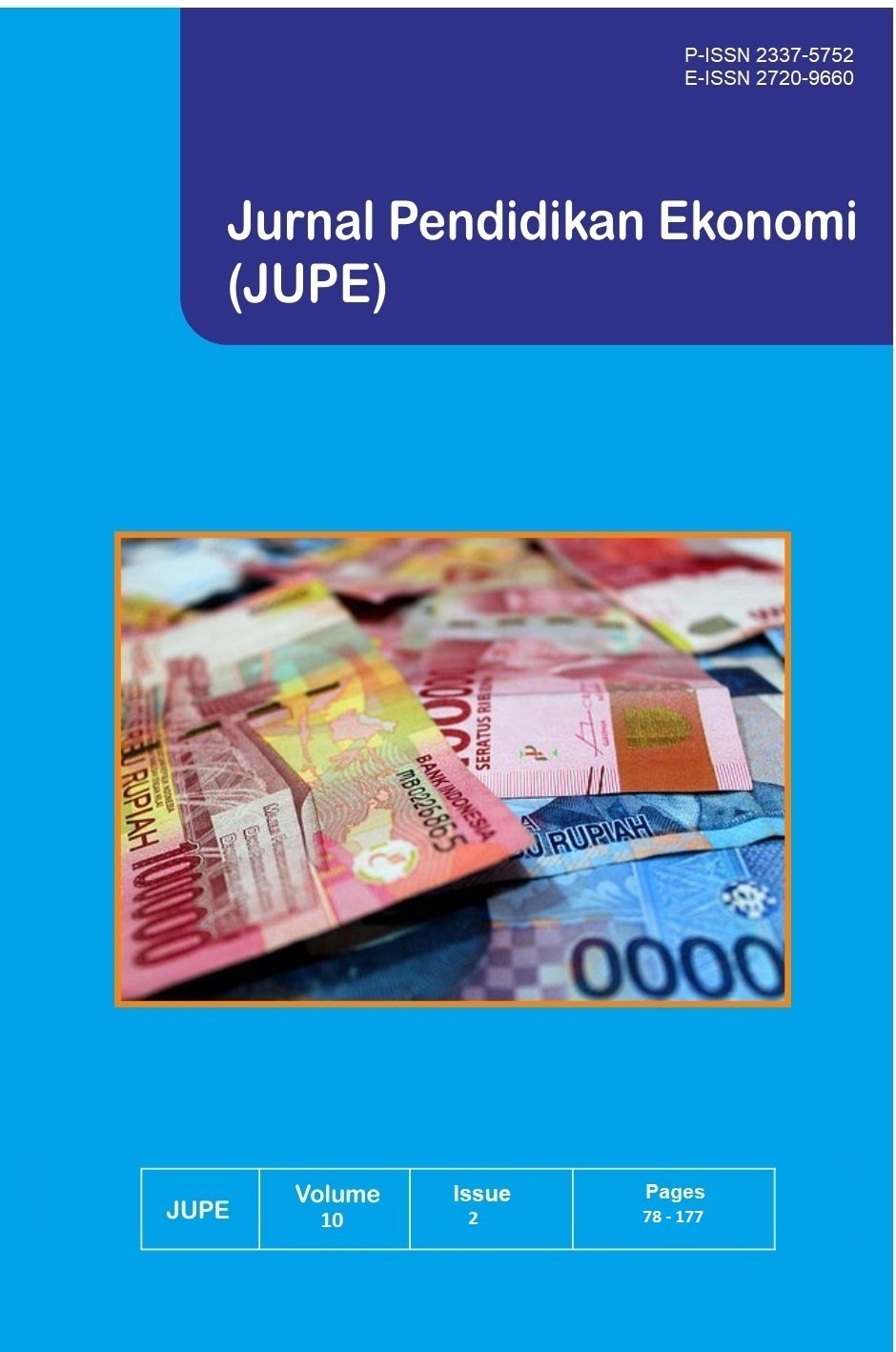Pengaruh Literasi Keuangan Ibu Rumah Tangga Terhadap Perilaku Pengelolaan Keuangan Keluarga Dimoderatori Tingkat Pendidikan dan Pekerjaan
DOI:
https://doi.org/10.26740/jupe.v10n2.p130-138Keywords:
financial literacy, financial management behavior, education level, employmentAbstract
This study aims to determine the effect of housewives' financial literacy on the behavior of family financial management by moderating the level of education and work in Mojo District, Kediri Regency. Determination of the research method is descriptive quantitative with research subjects housewives in Mojo District, Kediri Regency totaling 384 respondents. The sampling technique is non-probability sampling using convenience sampling technique by distributing questionnaires or questionnaires. The data analysis technique used in this research is Moderated Regression Analysis (MRA). The results obtained indicate that: (1) the financial literacy of housewives has a significant effect on the behavior of family financial management in Mojo District, Kediri Regency. (2) the financial literacy of housewives with a moderate level of education has a significant effect on the behavior of family financial management in Mojo District, Kediri Regency. (3) the financial literacy of housewives with a work moderator has no significant effect on the behavior of family financial management in Mojo District, Kediri Regency.
Downloads
Downloads
Published
How to Cite
Issue
Section
License
Copyright
- Authors retain copyright and grant the journal right of first publication with the work simultaneously licensed under a Creative Commons Attribution License that allows others to share the work with an acknowledgment of the work's authorship and initial publication in this journal.
 Abstract views: 813
,
Abstract views: 813
, PDF Downloads: 827
PDF Downloads: 827











